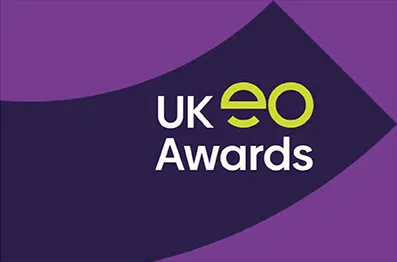When Ison Harrison became an employee-owned business in 2022 it was making a groundbreaking move, which was not without some trepidation. This was brought into even sharper focus by the fact that we were the first law firm to become 100% employee owned. It was natural at the time to wonder why no other law firm had made the transition to 100% employee-ownership before, but in truth there is no strong reason, and indeed, there is nothing about the employee-ownership model that makes it particularly challenging or complex for a legal organisation to pursue. In fact, there is nothing but positives.
Indeed we have subsequently advised a number of law firms on the transition to employee ownership.
Employee ownership criteria for Law Firms
Before considering whether employee ownership is right for your law firm, you need to consider whether you meet the legal criteria, namely:
- Limited company – The business must be a limited company, as the tax benefits of becoming employee owned, via an employee ownership trust (EOT), are only available if the shares in a limited company are sold. Consequently a partnership or LLP would not be eligible without prior restructuring work.
- Participator Limitations – In order to qualify to become an EOT, the sellers cannot account for more than 40% of the overall workforce.
- Finances – The business needs a good working capital position as the shares are purchased using available cash as a means of finance. This means the business needs a healthy trading position.
- SRA – in order to become an EOT, the SRA would need to approve the firm as an Alternative business structure. We can advise on this application as part of the transition process. The SRA need to approve the transition. Fortunately the SRA have become increasingly familiar with EOTs in recent years but it will involve the individual trustees also being approved by the SRA.
The signs that employee ownership is right for your business
From a strategic point of view, there are a number of signs you can look out for which might identify that your law firm is in a good position to transition to employee ownership. If you can point to these elements being in place, then a move to employee ownership can be beneficial. These include:
- Continuity – There is a stable culture and structure to the company and the existing partners want this to continue. If selling on the open market to third parties, or as a merger or acquisition, there can be issues with confidentiality and the legacy of the partners and what they have built up. Continuity requires a strong structure where succession planning is easy and there are qualified resources who are capable and willing to take on new roles and responsibilities. Continuity is also important for a law firm because it relies so much on existing client relationships, and a lot of business is generated via word of mouth, from those existing client relationships. Continuity ensures that everyday business remains largely the same to the outside observer.
- Employee engagement – Is there a collaborative culture amongst the workforce and are people happy to work together towards a common goal? One of the highlight benefits of becoming an EOT is employees enjoying a maximum £3600 annual bonus tax-free, but only if this is paid equally to all qualifying members. Is this likely to be received well? Do you have an inclusive workforce who are happy to share these benefits equally regardless of status or individual performance? If there are any internal politics or a history of conflict and disputes, it may not be the healthy environment you need for implementing inclusive profit-sharing schemes. Strong employee engagement is also required to achieve the 100% buy-in you need for employee ownership to work.
- Stable financial position – Sometimes a law firm can be seeking investment for a specific purpose, such as investing in new technology for example. In this case, an inward equity investment is welcome and can be transformational for a business that is already turning over healthy profits. However, if the partners are selling the business to employees simply to escape troublesome finances, this won’t reflect well on the business. It is therefore important that the partners are selling the business from a position of financial strength.
The benefits of employee ownership for law firms
There are many reasons why employee ownership can be beneficial to law firms in particular, and which can impact on the selling partners themselves, and also the remaining employees.
- Succession planning – Employee ownership provides a good exit strategy for selling partners who can pass the business on to people they trust to maintain its legacy and ethos.
- Tax advantages – There are tax advantages for selling partners, who can be exempt from capital gains tax if they sell to an EOT.
- Flexibility – There is some flexibility in how you structure the sale, as an EOT can buy a small or medium equity stake or a 100% equity stake. The tax incentives for becoming an EOT only apply if at least 51% of the shares in the Company are sold to an EOT
- Attraction – Being employee owned can be utilised as a key feature and benefit in job profiles, which means that the law firm has more appeal on the jobs market and can attract and retain a better standard of legal professional.
Becoming employee owned as a legal organisation
So, in summary, a legal firm is in a good position to become an EOT if it has a strong, collaborative culture with a good standard of employee engagement. Having a succession plan in place is a good indicator, as it suggests the law firm is not over-reliant on the expertise of existing partners who are selling their shares. Continuity is a huge benefit of transitioning to employee ownership as it preserves the client relationships that are so important to ongoing business and preserving the legacy and culture of the law firm.
There are practical considerations such as applications to the SRA or notifying third parties, such as the Legal Aid Agency, which will need to be considered as well as the practicalities of long term incentives for the future leaders of the business.
If your law firm is considering a move to employee ownership then get in touch with our team at the Employee Ownership Advisor. We have experience and expertise in every element of the process, and can advise on the common pitfalls and obstacles you may face when you are considering becoming an employee owned business. Contact our team today.
Complete this form and one of the team will get back to you.
"*" indicates required fields





